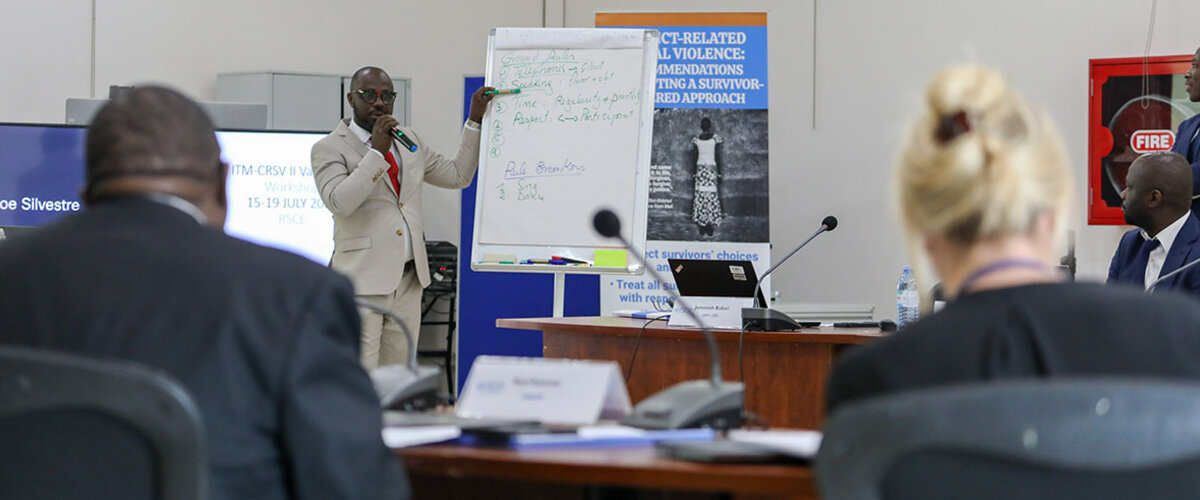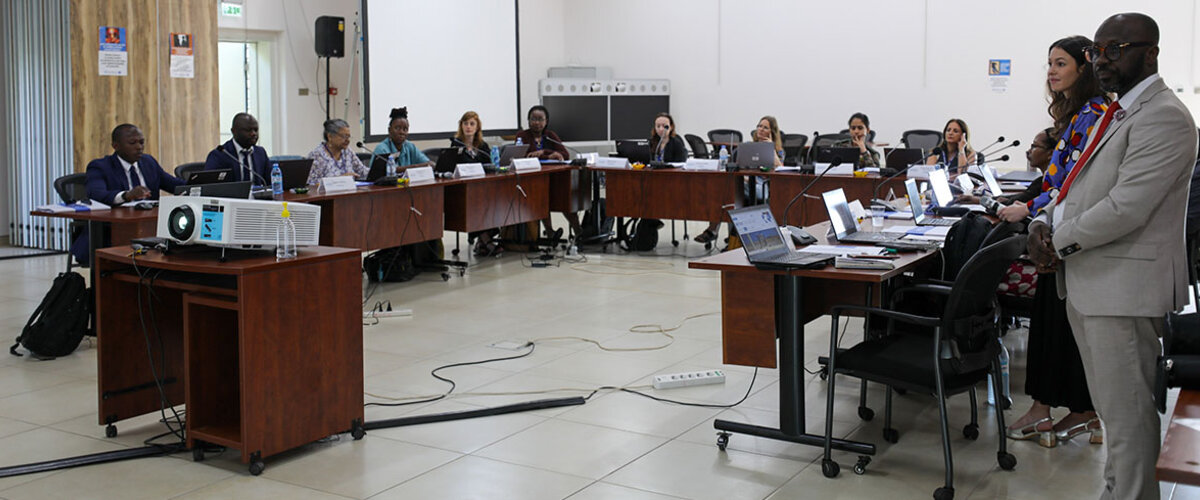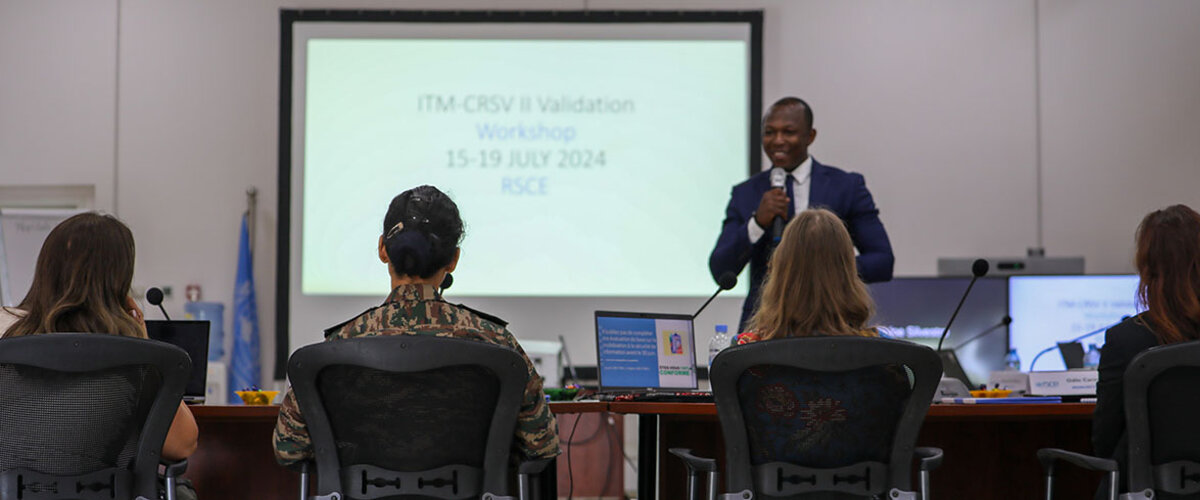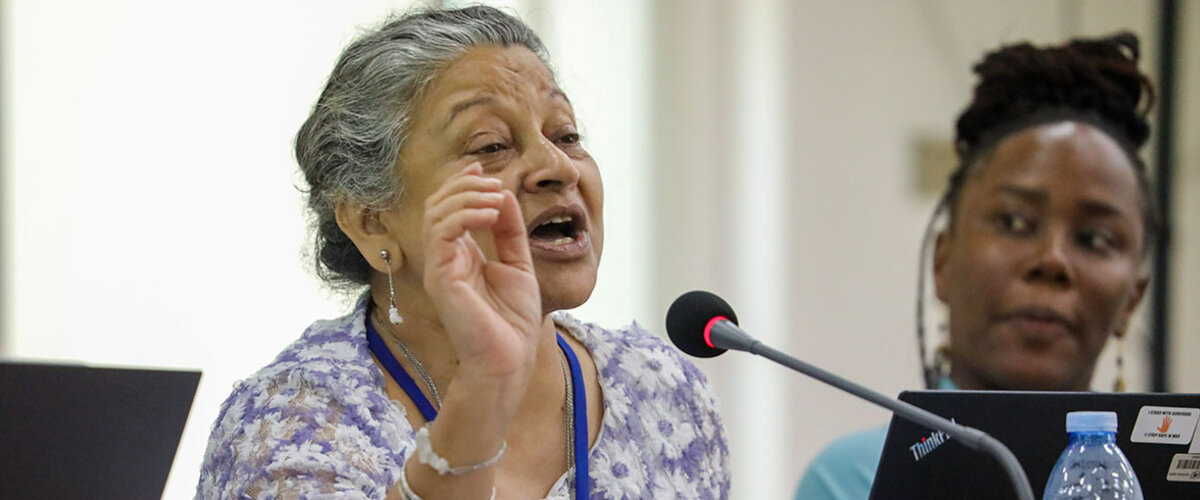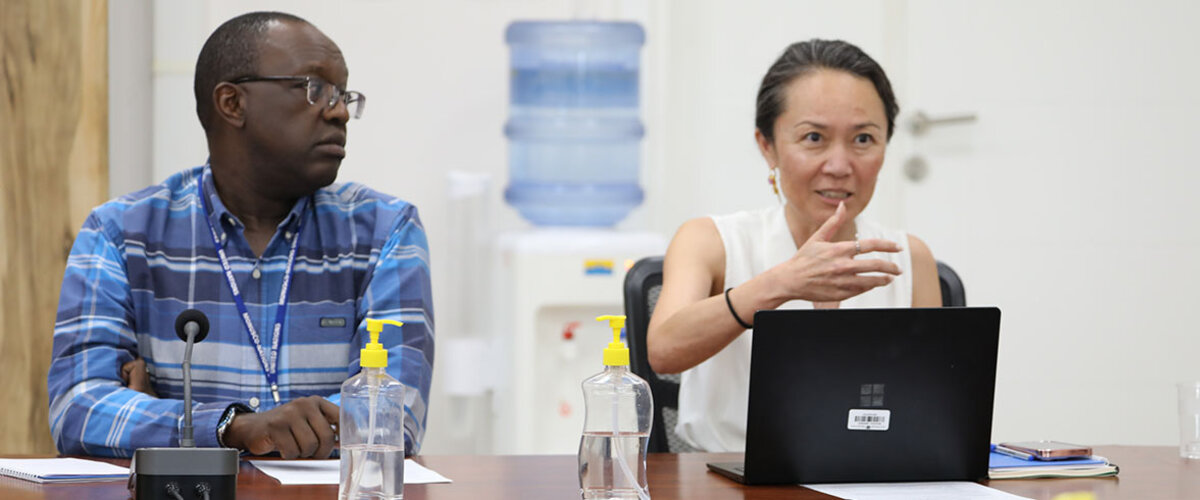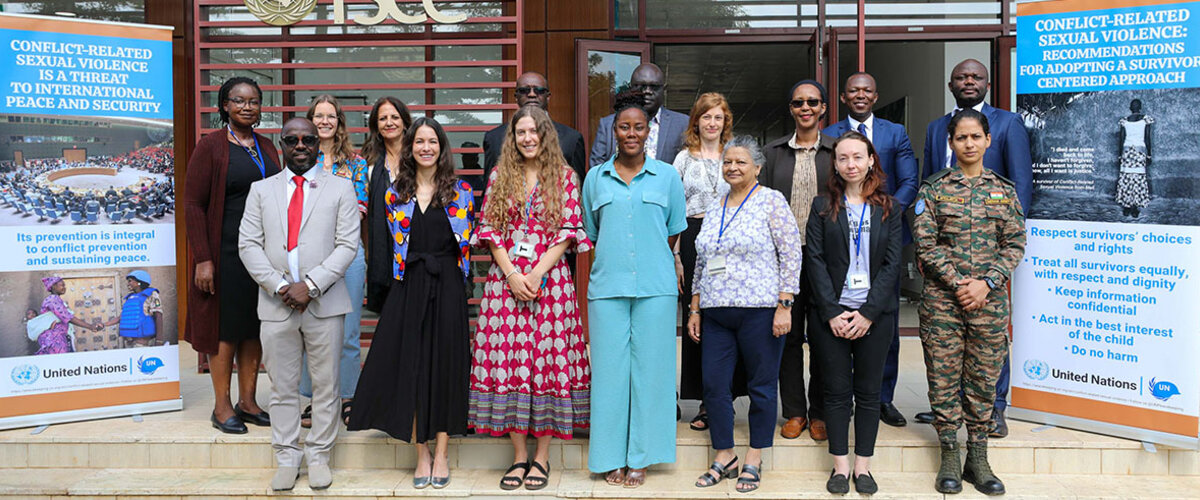From Training to Action: UN Prepares Mission Personnel to Tackle Sexual Violence
“To achieve sustainable peace, it's important that Conflict-Related Sexual Violence perpetrators are held accountable, and survivors have the services and support they need to recover and reintegrate into society.” This is the mission driving the efforts of UN field missions that are mandated to prevent and respond to conflict-related sexual violence, as articulated by Noel Kututwa, Senior Women’s Protection Advisor at the United Nations Assistance Mission in Somalia (UNSOM).
Noel was one of 13 field practitioners participating in a workshop organized to validate the second edition of the Integrated Training Material on Prevention and Response to Conflict-Related Sexual Violence (ITM-CRSV II) held at the Regional Service Centre Entebbe in Uganda from 15-19 July. “These training materials will be used in mission settings to assist CRSV Focal Points in how to identify sexual violence, report and monitor it, and most importantly, how to prevent and ensure that it ends,” Noel explains.
Building on the first edition of ITM-CRSV from 2016, this five-day workshop, organized by the Conflict-Related Sexual Violence Team at the United Nations Department of Peace operations (DPO) brought together civilian and uniformed personnel from UN Peacekeeping Operations and Special Political Missions in Africa and the Middle-East, as well as representatives from UNFPA, and UN Headquarters in New York.
“The whole purpose of this validation workshop is to have material reviewed for proper use and implementation further down the line. The participants come from different missions and backgrounds, so we need standardized material to ensure that basic concepts are properly explained and understood,” asserts Sheila Keetharuth, Senior Women’s Protection Advisor at the United Nations Mission in South Sudan (UNMISS).
Through a “training of trainers” format, the course builds participants' capacities, equipping them with the knowledge and skills needed to replicate the specialized training on CRSV at the mission level. “There are still questions which need to be ironed out, material which needs to be reviewed. But much has been accomplished and it puts us on the right track for implementation by the respective missions,” Sheila concludes.
As of 2024, the United Nations Security Council has adopted operational provisions related to the prevention and response to CRSV in the mandates of six UN Field Missions: UN Organization Stabilization Mission in the Democratic Republic of the Congo (MONUSCO), UN Multidimensional Integrated Stabilization Mission in the Central African Republic (MINUSCA), UNMISS, UN Support Mission in Libya (UNSMIL), UNSOM and UN Assistance Mission for Iraq (UNAMI). To fulfil these responsibilities, personnel in the missions require standardized training to identify and recognize incidents and patterns of CRSV and to react according to their respective functions and responsibilities. The efforts at the ITM-CRSV II workshop represent a significant step forward in ensuring that UN personnel are well-prepared to combat CRSV, providing crucial support for survivors and helping to build a foundation for sustainable peace.
 UN
UN United Nations Peacekeeping
United Nations Peacekeeping
